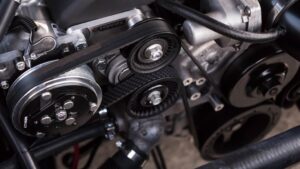
Unexpected car repairs can be expensive, and they can cause financial hardship if you don’t have money set aside to deal with emergencies. Many people find themselves caught in a cycle where they have to borrow money to pay for car repairs, and then about the time they pay off the loan, the car breaks down again and they have to start over.
By learning how to maintain your car properly, you can cut down on costly repairs. Here are eight tips to help you avoid costly car repairs.
1. Check and change the oil regularly. Most older cars need to have the oil changed every three months or 3,000 miles, whichever comes first. Keeping the oil changed keeps your engine properly lubricated so that it runs smoothly. In addition to changing the oil, you should check the level regularly so you know when you need to add more oil.
2. Follow the maintenance schedule in your owner’s manual. Your car’s owner’s manual will have a schedule of maintenance stating what should be done at specific intervals, usually at 30,000, 60,000 and 90,000 miles. This includes checking the battery and brake fluid, replacing brake pads and resurfacing rotors, adding coolant, and checking transmission fluid. It also includes replacing cracked hoses, checking the power steering, changing the timing belt, and replacing your spark plugs.
3. Check your spare tire. Keeping your spare tire inflated can save you the expense of towing fees if you ever have a flat tire. This tip alone could save you $100 or more.
4. Clean your battery. Check the battery terminals for corrosion and use a wire brush to clean them off if necessary. This can help keep your battery functioning properly.
5. Replace your air filter. Running your car with a dirty air filter can damage your air conditioning system. It’s much cheaper to replace an air filter than an A/C unit.
6. Rotate your tires. The tires on your car do not all wear down evenly. Some tires wear down faster than others. By rotating your tires, you spread the wear more evenly and your tires will last longer before needing to be replaced.
7. Check the suspension. Inspect your shocks, springs, and struts every 15,000 to 30,000 miles (or ask your mechanic to take a look). Generally, if one needs to be replaced, it is best to replace all four at once.
8. Check your coolant. If you don’t have enough coolant, it can affect the heat, air conditioning, water pump, and radiator. It’s a good idea to check the coolant at least twice per year: once before winter and again before summer. Make sure to check the antifreeze during your pre-winter check.
At Tio Rico, we see a lot of people needing to borrow money to pay for car repairs. By taking good care of your car, you can extend its life and reduce the need for costly car repairs. If you need money fast a personal loan might be your solution, contact us today to learn more.

